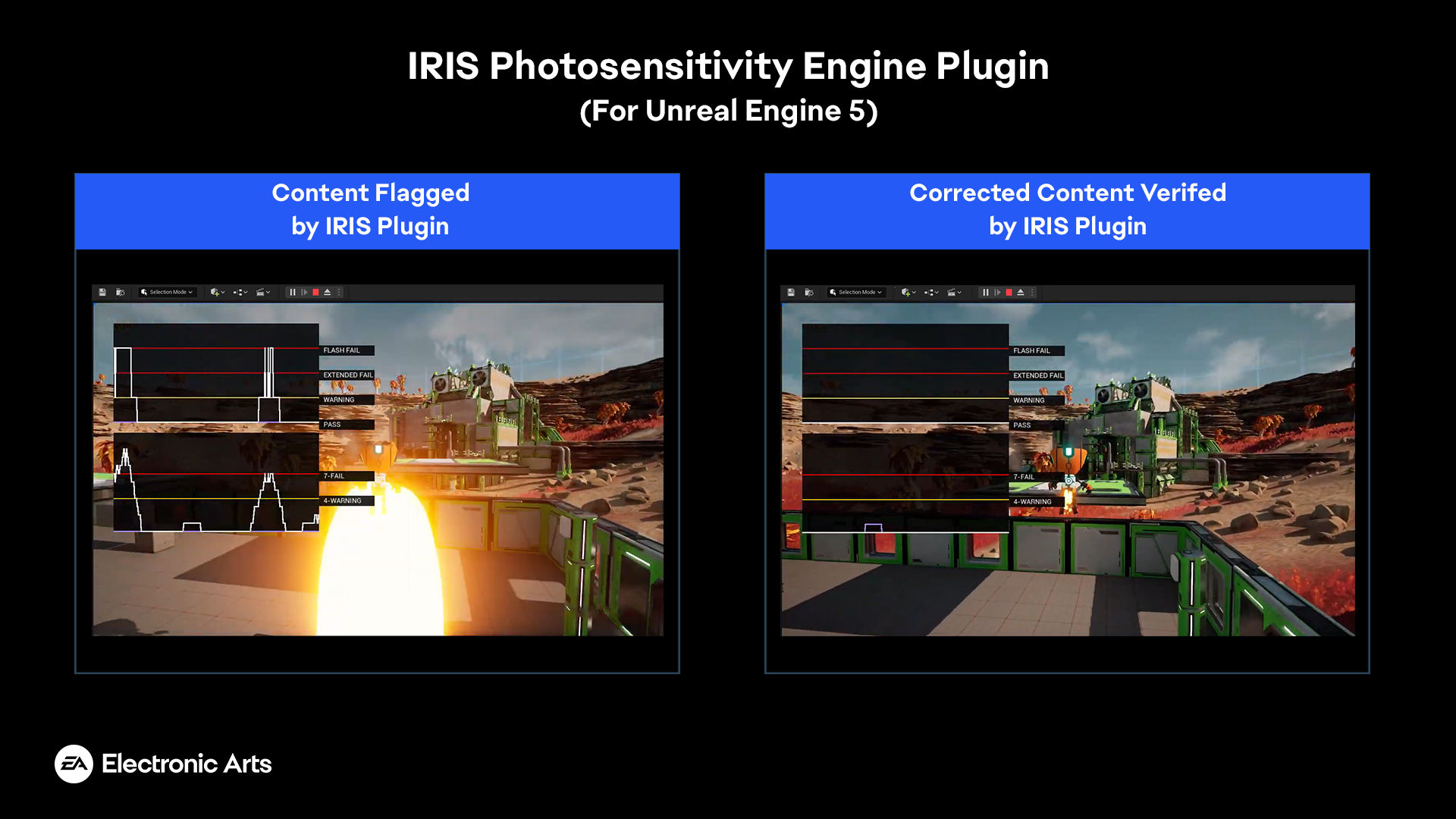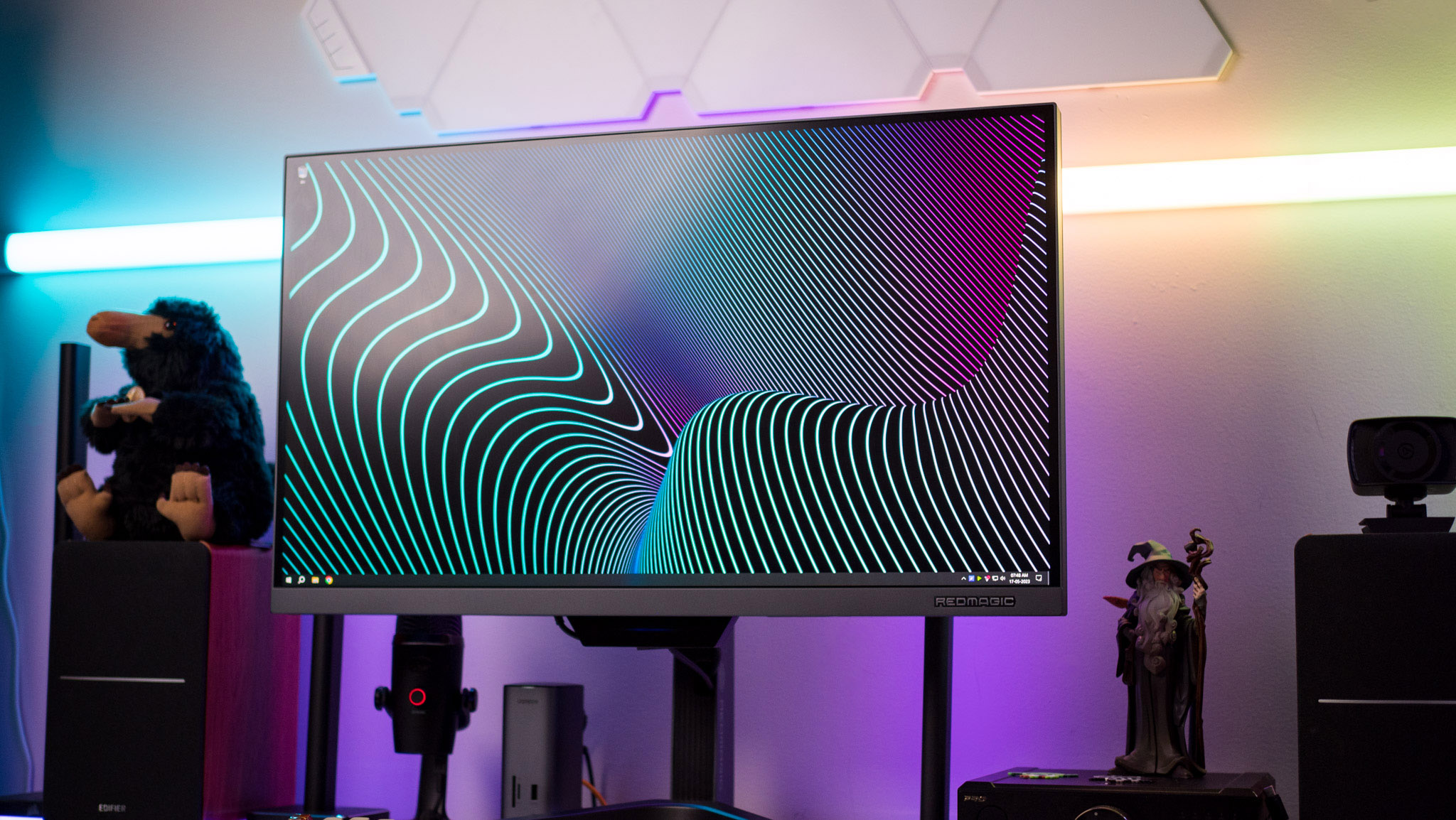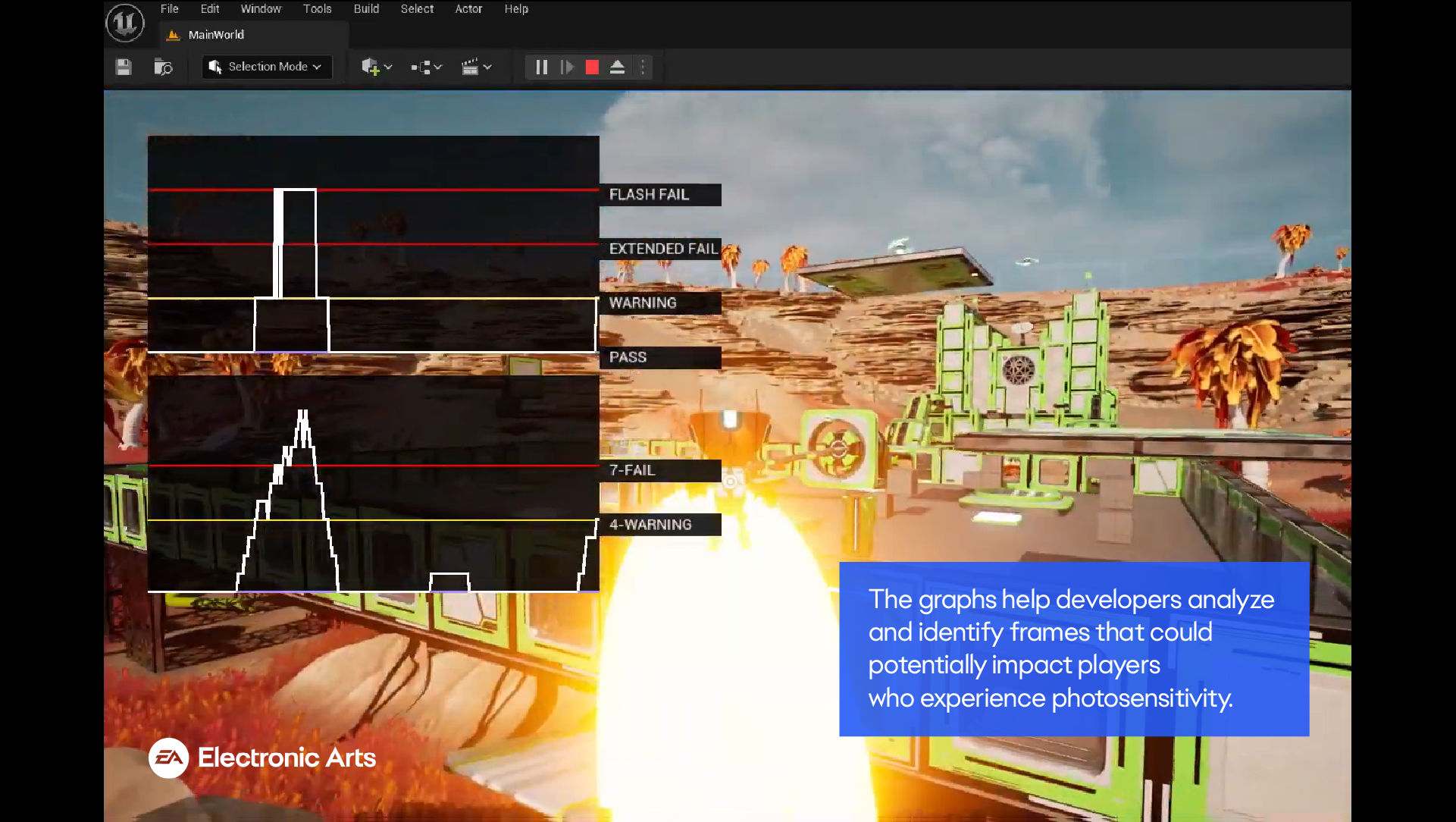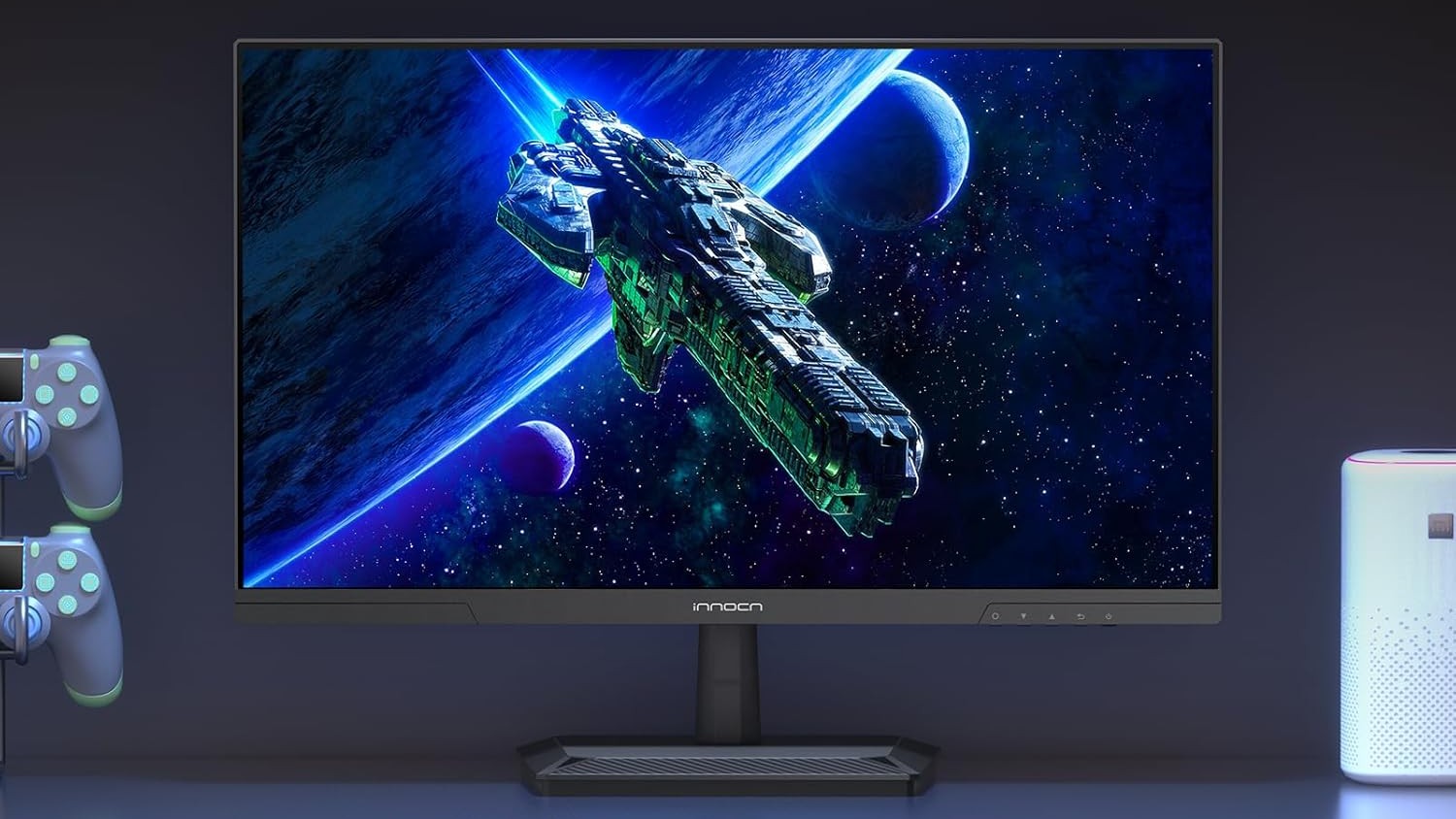EA announces it will patent 23 accessibility technologies that will be available to developers royalty-free "to reduce or eliminate as many barriers to access as possible and empower our gamers"
The industry-first Patent Pledge was originally announced in 2021, but today is growing the catalog of technology to double that of its original offering.

What you need to know
- Electronic Arts (EA) has announced that it will be patenting 23 new technologies to make gaming more accessible for more people.
- The new technologies will be made available industry-wide free of royalties or licensing fees.
- Six of the 23 newly patented technologies are set to be released this year, including Intelligent Personalized Speech Recognition, the IRIS plug in for Unreal Engine 5, and Emotion Based Music Style Change Using Deep Learning.
With the International Day of People with Disabilities having just recently passed on December 3, some gaming corporations have shared a look into their recent efforts to remove barriers to make gaming more inclusive and accessible. Xbox recently shared its ongoing commitment by announcing new accessibility features and highlighting games with improved accessibility. Today, Electronic Arts (EA) is also announcing it is doing its part to improve gaming for more players by revealing 23 new patents are being added to its Patent Pledge.
In 2021, EA revealed an industry-first Patent Pledge for accessibility technologies. In this pledge, the company revealed it would hold the patent for a variety of tech that could be used to remove the barriers faced by people with a variety of accessibility obstacles. However, access to the technology patented by EA would be available industry-wide without royalty or licensing fees.

• Best prebuilt gaming PCs
• Best gaming monitors
• Best gaming keyboards
• Best gaming mouse
• Best PC gaming headsets
• Best small gaming PCs
• Best gaming laptops
• Best graphics cards
“We believe that games should be accessible to everyone and our industry-leading teams are always looking for new ways to make this a reality,” said Kerry Hopkins, SVP of Global Affairs at EA, “By making this technology available to others, we continue to work to enhance accessibility and inclusivity for players around the world by removing unintended barriers to access.”
In addition to the new patents, EA will also release a plugin for Unreal Engine 5 that utilizes IRIS, EA's photosensitivity analysis tech. The IRIS Plugin allows developers who are building their games in Unreal Engine 5 to analyze and identify frames in their games that could potentially impact players who experience photosensitivity.
Developers can use the IRIS plugin in real-time as their game is running to detect luminance flashes, red saturation flashes, and spatial patterns that can prove harmful to players with photosensitive epilepsy or otherwise cause discomfort to the viewer.

EA has also announced that six of the accessibility technologies that are part of the 23-patent roundup are expected to be available this year. This includes the following technologies:
- Intelligent Personalized Speech Recognition: Speech recognition system that improves the accuracy and efficiency of speech recognition by using personal phoneme mappings for each user, to better understand accent and other pronunciation variations such as those resulting from speech impairments.
- Generating Expressive Speech Audio From Text Data: A system that generates expressive speech audio from text data, and provides more control and personalization of the generated speech based on desired speaking style and speaker attributes.
- Generating Speech in the Voice of a Player of a Video Game : A system that can generate speech in the voice of a player, for their avatar, based on minimal sample speech data as compared with existing techniques.
- Voice Aging Using Machine Learning: A system that can age an original input voice to a desired target age without requiring additional voice samples.
- Emotion Based Music Style Change Using Deep Learning: A system that infers a player’s emotion while playing a video game and tunes the background soundtrack of the game to best fit that emotion.
- Dynamically Selecting Speech Functionality on Client Devices: A system that automatically detects and enables speech recognition technologies available on a gaming device.
EA's previously patented accessibility technologies also include Fonttik. Fonttik is a tool that identifies text in visual content and determines whether it meets specified size and contrast ratio criteria, making it easier to check that the text can be read by players with varying vision conditions. Apex Legends' "ping system" is another accessibility technology from EA that is widely used by an overwhelming number of players, it's also become a standard for team-based games. Even titles like Call of Duty have instituted similar ping systems as a result of its success.
Get the Windows Central Newsletter
All the latest news, reviews, and guides for Windows and Xbox diehards.
🔥The hottest post-Cyber Monday deals🔥
- 💻HP EliteBook 14 (Ryzen 7 PRO) | $699 at HP (Save $2,223!)
- 🎮Xbox Series X Digital Edition (1TB) | $398 at Walmart (Save $51.99!)
- 🕹️Xbox Game Pass Ultimate (3-months) | $29.29 at CDKeys (Save $11!)
- 🎮Lenovo Legion Go (Z1 Extreme) | $539.99 at Amazon (Save $160!)
- 💻Surface Pro 11 w/ keyboard (X Plus) | $999.99 at Best Buy (Save $350!)
- 💽Seagate Xbox Series X|S Card (2TB) | $199.99 at Best Buy (Save $160!)

Cole is the resident Call of Duty know-it-all and indie game enthusiast for Windows Central. She's a lifelong artist with two decades of experience in digital painting, and she will happily talk your ear off about budget pen displays.
-
Phyzzi The voice auto-aging sounds more creepy than promoting accessibility, but in general I am glad more tools are being produced to better fit the needs of gamers with more diverse backgrounds and abilities. I especially like the analysis tools, and think it would be cool if those could be set to run on a computer for someone with photosensitivity in a way that could mitigate actual on-screen triggers in any visual output at any time, as they are processed in graphics. This of course also points to the problem of no-royalty patents instead of simply making these tools open source, but I also understand the difficulties of making AI based tools open sourced and acknowledge that these are actually uses for AI that make sense and help people, instead of mostly being ways to steal and remix previous creative work.Reply
I really do hope that the voice aging tool only goes one way though, and is implemented thoughtfully, since the last thing we need is another way for adult creeps to convince kids they are just friendly peers.

